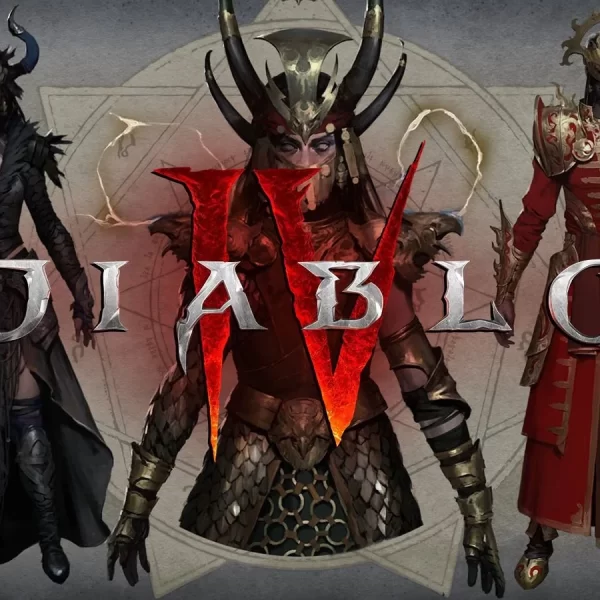
Unlocking the full potential of online gaming businesses and ensuring their prosperity in the market necessitates the implementation of strategic marketing techniques that contribute significantly to their financial success.
In the modern era, gaming has witnessed an unprecedented surge in popularity, with the allure of new technologies such as artificial intelligence (AI), augmented reality (AR), and virtual reality (VR) accelerating this adoption and growth. As prominent game application providers like GammaStack enter the market, a continuous influx of new games is witnessed, accompanied by the strategic planning of cutting-edge game marketing techniques. These initiatives not only cater to the increasing demand for immersive gaming experiences but also pave the way for robust financial gains in the dynamic landscape of the online gaming industry.
Embarking on the journey of investments prompts a close examination of their success and profitability, a metric encapsulated by the term “return on investment” (ROI). The efficacy of an investment is measured against various available options, with the primary goal of calculating the ROI of a project about its incurred costs. The essence of ROI lies in achieving a larger measure, indicating a successful investment, particularly when costs are minimized.
For business owners, the realization that misguided investments yield minimal profits underscores the importance of strategic decision-making. Instead, the focus should be on investments that promise high returns, accompanied by a keen eye for opportunities to curtail expenses. Within the gaming industry, the path to prosperity is guided by a set of marketing principles that aim to optimize ROI.
At the forefront of these principles is the pivotal role of relationship building. While marketing budgets often allocate funds for loyalty or referral programs, there is a distinct absence of a dedicated budget for fostering genuine relationships with customers. This void presents a unique opportunity for businesses to prioritize customer satisfaction, actively engage with their clientele, and cultivate enduring relationships that extend beyond mere transactions.
Twitch Streaming
A noteworthy avenue within the gaming industry that amplifies the impact of marketing strategies is Twitch streaming. According to Statista, Twitch is poised to host a staggering 188 million users by 2023, underscoring its significance as a live broadcasting platform with a robust and expanding user base. Notably, Twitch users display receptivity to advertisements, provided they are engaging and relevant. This high level of engagement becomes a powerful tool for marketers to effectively communicate information about their products.
Moreover, Twitch’s unique influencer marketing aspect adds a layer of efficacy to game marketing strategies. Users place a high level of trust in their favorite influencers, and when these influencers endorse a game through streaming, their followers eagerly follow suit. This dynamic creates an authentic connection between the game and its potential players, as users are motivated to download and play a game endorsed by a trusted influencer.
In conclusion, the pursuit of success in the gaming industry requires a nuanced understanding of ROI and the implementation of strategic marketing principles. These include the emphasis on relationship building to ensure lasting customer connections and the strategic utilization of platforms like Twitch, with its expansive user base and influential influencers. By aligning with these principles, gaming companies not only enhance their ROI but also establish a resilient presence within the ever-evolving gaming market.
Sponsorships in the Gaming Realm:
The gaming industry has emerged as a lucrative gold mine for advertisers and sponsors. Despite some marketers perceiving these channels as mere hype, the reality is that gaming sponsorships are gaining significant popularity. Imagining the potential return on investment (ROI) today, had a business been connected with gaming participants or teams, underscores the untapped opportunities in this thriving sector. Seizing these marketing chances is essential, with collaborations with game influencers providing a unique avenue to engage the gaming audience in innovative ways.
Social Media Platforms for Gaming:
Harnessing the potential of social media platforms is crucial in gaming marketing. Platforms like Twitter serve as hubs for immediate news updates, while Reddit offers a diverse space for various gaming-related activities. The creation of Discord channels has become a common practice for developers, designers, and marketers to connect with players and foster community engagement. Featured snippets on social media, comprising game FAQs, new content, and trailers, stand out as effective tools for promoting video games.
Marketing Guidelines for Gaming Audiences:
Channel Selection:
Wisely choose marketing channels based on their unique selling propositions (USP).
Compelling Campaign Hooks:
Craft captivating hooks that resonate with your target market, drawing them into your marketing campaign.
Target Market Focus:
Define your target market clearly and concentrate your efforts solely on engaging them.
Premium Pricing Option:
Offer a premium pricing option transparently, avoiding deceptive tactics and respecting the buyer’s choice.
Final Thoughts:
As the gaming industry continues to attract a growing number of consumers, investors, and fans, gaming businesses have the potential for significant growth in terms of business volumes, values, and ROIs. Leveraging performance marketing strategies and setting clear Key Performance Indicators (KPIs) can propel these companies toward success. The key to success lies in strategic planning, focusing on the right audiences, and selecting optimal advertising types and distribution techniques to ensure a robust return on investment.











